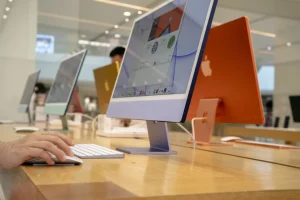According to a report from Ars Technica, numerous Pixel owners have had a frustrating experience as Google took more than a month to address a critical bug. This issue emerged with the introduction of Android 14 on October 8th, affecting users with multiple accounts who were locked out of their device’s local storage. The problem impacted a range of devices, from the Pixel 4 to the Pixel 8, and for many, it was akin to being locked out of their phones, resembling a ransomware scenario.
Some individuals found themselves unable to unlock their devices, while others could boot up but had no access to locked storage. For some unfortunate users, the bug rendered their phones entirely unusable, causing them to continuously bootloop without reaching the home screen. Reports of the issue surfaced shortly after Android 14’s launch, but Google continued to roll out the flawed release and only acknowledged the flaw around 20 days after its initial appearance.
Although the November update patch is now being released, the initial release notes on November 2 were far from reassuring. Google mentioned that users locked out of their storage might only recover a portion of their data, and those experiencing a boot loop could lose everything. The latest update, however, states that users who couldn’t access media storage should regain their data after installing the November patch.
For individuals stuck in a reboot loop, the situation may not be as favorable. These users will at least have the opportunity to resume normal operation after submitting a form. Google, however, stated that “data recovery solutions are still being investigated for devices that are repeatedly rebooting,” and they promised to provide additional updates in the near future.
This incident underscores how Google faltered in implementing its much-touted fail-safe systems, as noted by Ars Technica. Despite multiple reports, Google persisted in releasing Android 14 with the flaw, and the dual partition system, which was highly praised, failed to accurately detect a boot failure. Moreover, Google took an extended period to prioritize and address the issue, leaving many users with malfunctioning phones for several weeks. “Little did I realize that ‘seven years of updates’ was not a feature, but a threat,” lamented one disgruntled user on Google’s issue tracker.




